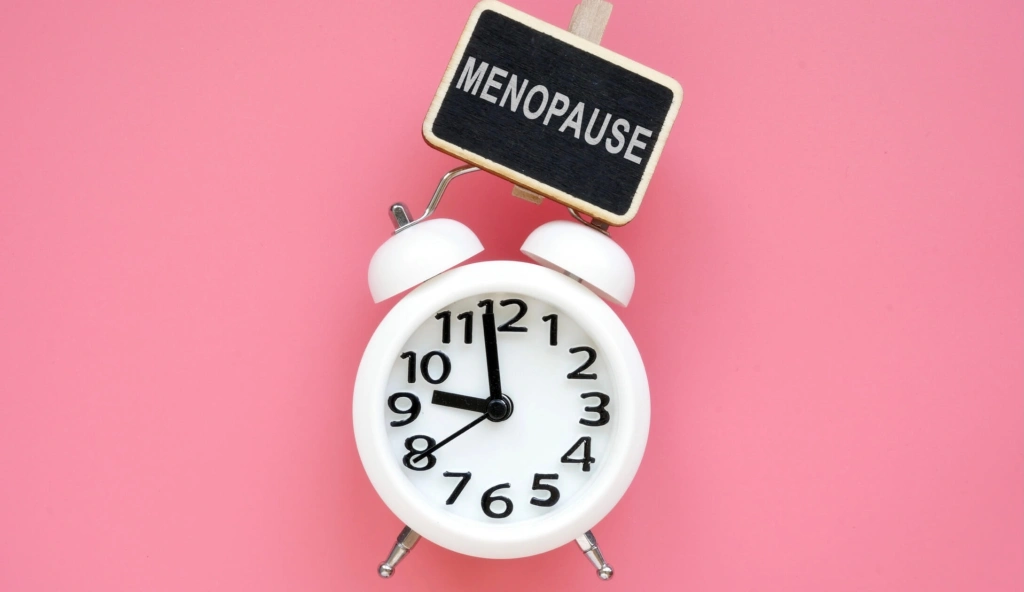Menopause is the complete cessation of the menstrual cycle and fertility in a woman. It is a part of the irreversible aging process.
What is menopause?
No menstruation for 12 consecutive months is a complete menopause, although the process of menopause begins several years earlier, which is also called perimenopause.
This aging process of climacteric doesn’t come alone, it comes with many uncomfortable symptoms like hot flashes, weight gain and many more.
What is the menopause age?
According to studies, women may achieve menopause in their 50s or early 50s, only 1% of women hit early menopause in 40s depending on genetics and ovary health.
Many women enter the perimenopause period before menopause, in which hormones begin to change in preparation for climacteric. And some women skip perimenopause and suddenly enter menopause.
How long do the symptoms of menopause last?
Perimenopause can start 4-6 years before menopause and a woman may experience hormonal changes by 4-5 years postmenopause. In total, a woman can have menopausal symptoms for a maximum of 12 years.
Here are a few factors that lower physiological climacteric.
- Smoking
- Hysterectomy
- Oopherectomy
- Fragile X carrier
- Autoimmune disorder
- Living at high altitude
- Undergoing certain chemotherapy
Perimenopause vs. menopause vs. postmenopause
Menstruation becomes irregular during perimenopause. Your periods may be late, or you may skip one or more periods altogether. Menstrual flow may also be heavy or light.
Menopause is defined as the absence of menstruation for a full year.
Postmenopause refers to the years following menopause.
Menopause Symptoms
During this phase, a woman goes through wide variations in hormonal levels and experience a range of symptoms.
Every woman has a unique experience of her menopausal journey. Symptoms can be severe in women with a short menopausal phase.
Common symptoms in perimenopause

An estimated 75% of women have hot flashes during climacteric.
- Less frequent menstruation
- Heavy or light menstrual bleeding
- Hot flashes, night sweats and flushing
Signs of menopause
Here are the symptoms that many women may experience during this phase:
- insomnia, difficulty in sleeping
- vaginal dryness
- weight gain
- headaches
- racing heart
- urinary tract infections (UTIs)
- reduced muscle mass
- painful or stiff joints
- reduced bone mass
- depression and anxiety
- difficulty concentrating
- memory problems
- low sex drive
- dry skin, mouth, and eyes
- increased urination
- sore or tender breast
- hair thinning or loss
- increased hair growth on other areas of the body, such as the face, neck, chest, and upper back
Why does it occur?
It is an aging process of the ovaries and causes atrophy, which means women produce fewer reproductive hormones.
The body undergoes various changes due to loss of ovarian sensitivity to estrogen, progesterone, testosterone, FSH and LH and reduces follicle formation.
How and why to diagnose menopause?
Sometimes hormonal changes may not be responsible for irregular menstrual bleeding during this phase, it may have different causes such as uterine fibroids, uterine polyps, endometrial hyperplasia, or endometrial cancer, which becomes more prevalent during this time.
So whenever you notice you have any signs of menopause or irregular menstrual bleeding or any other abnormal symptom just make sure to consult a gynecologist on a priority basis.
Your healthcare provider may run certain blood tests to measure the levels of certain hormones to diagnose. He or she may also order lab work according to your symptoms and to diagnose any other underlying health conditions.
Treatment
Menstrual cessation is not a disease but a phase of a woman’s aging process. It brings a lot of symptoms for which she may require treatment. Hormone replacement therapy is an effective treatment for women undergoing menopause. Hot on replacement therapy may ease symptoms like
- Hot flashes
- Night sweats
- Vaginal atrophy
- Osteoporosis
Hormone therapy may have side effects and contraindications. So do not take it on your own or without a supervision on expert.
Your healthcare provider may order medications according to your symptoms also.
Home remedies and lifestyle changes

There are many ways to manage symptoms of menopause naturally by adopting home remedies, lifestyle changes and alternative treatments.
Stay cool
Choose comfy and loose cloths to wear especially in the night to ease hot flashes. Do not take heavy blankets during night to avoid night sweats.
Aluan’s mini fan* is a good companion for travel when you are experiencing a lot of sweating.
Regular Exercise
Exercising regularly is a great way to manage your weight as well as for stress management. Exercising moderately helps to increase energy, improve mood and promote better sleep.
Supplements
Include calcium, vitamin D and magnesium in your diet to lower the risk of osteoporosis and improve energy levels.
Meditate
You can choose meditation or other relaxing and breathing activities like
- Yoga
- Pranayam( anulomana and vilomana)
- Meditation
Skincare
Taking care of the skin is an integral part of this phase as your skin tends to become more dry and can cause itching, so be sure to apply plenty of moisturizer and hydrate your skin well.
Menopause is a part of life and every woman has to go through. Be aware of your symptoms, talk to your female friends about their menopaus story and how did they manage to support yourself.
If you like this article do give it a big thumbs-up to keep me inspired and motivated to provide you with more and more tips about women health. You can always reach out to me in the comment section with your queries and feedback.

